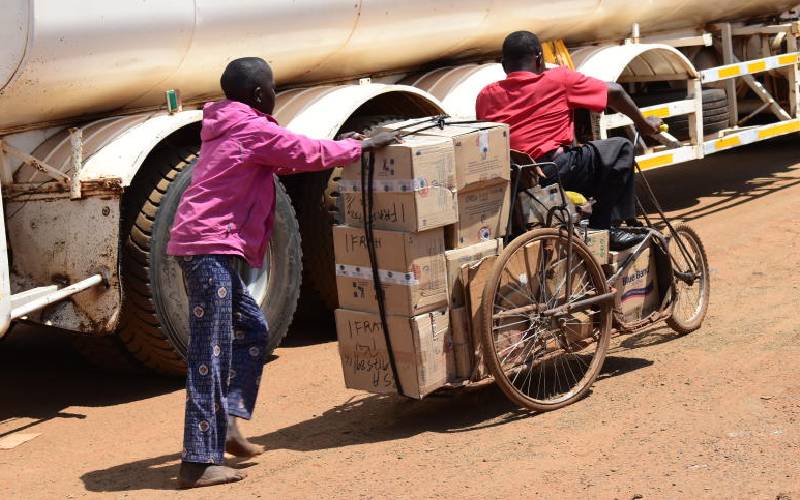×
The Standard e-Paper
Kenya’s Boldest Voice

A teenager helps to push a wheelchair carrying a middle-aged disabled man together with his belongings in Busia town.[Mumo Munuve,Standard]
If you live near the border towns of Busia and Malaba, you get an overriding notion that Kenya and Uganda are so interdependent.